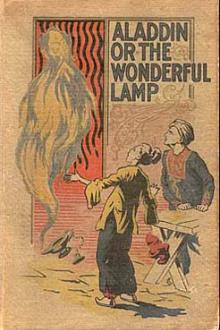The Yellow Claw by Sax Rohmer (best short novels txt) 📗

- Author: Sax Rohmer
Book online «The Yellow Claw by Sax Rohmer (best short novels txt) 📗». Author Sax Rohmer
“Tosh!” snapped Dunbar, irritably; “your ideas of psychology would make a Manx cat laugh! I suppose, on the same analogy, you think the leader-writers of the dailies could run the Government better than the Cabinet does it?”
“I think it very likely”...
“Tosh! Is there anybody in London knows more about the inside workings of crime than the Commissioner? You will admit there isn't; very good. Accordingly to your ideas, the Commissioner must be the biggest blackguard in the Metropolis! I have said it twice before, and I'll be saying it again, Sowerby: TOSH!”
“Well,” said Sowerby with an offended air, “has anybody ever seen Mr. King?”
“What are you driving at?”
“I am driving at this: somebody known in certain circles as Mr. King is at the bottom of this mystery. It is highly probable that Mr. King himself murdered Mrs. Vernon. On the evidence of your own notes, nobody left Palace Mansions between the time of the crime and the arrival of witnesses. Therefore, ONE of your witnesses must be a liar; and the liar is Mr. King!”
Inspector Dunbar glared at his subordinate. But the latter continued undaunted:—
“You won't believe it's Leroux; therefore it must be either Mr. Exel, Dr. Cumberly, or Miss Cumberly.”...
Inspector Dunbar stood up very suddenly, thrusting his chair from him with much violence.
“Do you recollect the matter of Soames leaving Palace Mansions?” he snapped.
Sowerby's air of serio-comic defiance began to leave him. He scratched his head reflectively.
“Soames got away like that because no one was expecting him to do it. In the same way, neither Leroux, Exel, nor Dr. Cumberly knew that there was any one else IN the flat at the very time when the murderer was making his escape. The cases are identical. They were not looking for a fugitive. He had gone before the search commenced. A clever man could have slipped out in a hundred different ways unobserved. Sowerby, you are...”
What Sowerby was, did not come to light at the moment; for, the door quietly opened and in walked M. Gaston Max arrayed in his inimitable traveling coat, and holding his hat of velour in his gloved hand. He bowed politely.
“Good morning, gentlemen,” he said.
“Good morning,” said Dunbar and Sowerby together.
Sowerby hastened to place a chair for the distinguished visitor. M. Max, thanking him with a bow, took his seat, and from an inside pocket extracted a notebook.
“There are some little points,” he said with a deprecating wave of the hand, “which I should like to confirm.” He opened the book, sought the wanted page, and continued: “Do either of you know a person answering to the following description: Height, about four feet eight-and-a-half inches, medium build and carries himself with a nervous stoop. Has a habit of rubbing his palms together when addressing anyone. Has plump hands with rather tapering fingers, and a growth of reddish down upon the backs thereof, indicating that he has red or reddish hair. His chin recedes slightly and is pointed, with a slight cleft parallel with the mouth and situated equidistant from the base of the chin and the lower lip. A nervous mannerism of the latter periodically reveals the lower teeth, one of which, that immediately below the left canine, is much discolored. He is clean-shaven, but may at some time have worn whiskers. His eyes are small and ferret-like, set very closely together and of a ruddy brown color. His nose is wide at the bridge, but narrows to an unusual point at the end. In profile it is irregular, or may have been broken at some time. He has scanty eyebrows set very high, and a low forehead with two faint, vertical wrinkles starting from the inner points of the eyebrows. His natural complexion is probably sallow, and his hair (as hitherto mentioned) either red or of sandy color. His ears are set far back, and the lobes are thin and pointed. His hair is perfectly straight and sparse, and there is a depression of the cheeks where one would expect to find a prominence: that is—at the cheekbone. The cranial development is unusual. The skull slopes back from the crown at a remarkable angle, there being no protuberance at the back, but instead a straight slope to the spine, sometimes seen in the Teutonic races, and in this case much exaggerated. Viewed from the front the skull is narrow, the temples depressed, and the crown bulging over the ears, and receding to a ridge on top. In profile the forehead is almost apelike in size and contour....”
“SOAMES!” exclaimed Inspector Dunbar, leaping to his feet, and bringing both his palms with a simultaneous bang upon the table before him—“Soames, by God!”
M. Max, shrugging and smiling slightly, returned his notebook to his pocket, and, taking out a cigar-case, placed it, open, upon the table, inviting both his confreres, with a gesture, to avail themselves of its contents.
“I thought so,” he said simply. “I am glad.”
Sowerby selected a cigar in a dazed manner, but Dunbar, ignoring the presence of the cigar-case, leant forward across the table, his eyes blazing, and his small, even, lower teeth revealed in a sort of grim smile.
“M. Max,” he said tensely—“you are a clever man! Where have you got him?”
“I have not got him,” replied the Frenchman, selecting and lighting one of his own cigars. “He is much too useful to be locked up”...
“But”...
“But yes, my dear Inspector—he is safe; oh! he is quite safe. And on Tuesday night he is going to introduce us to Mr. King!”
“MR. KING!” roared Dunbar; and in three strides of the long legs he was around the table and standing before the Frenchman.
In passing he swept Sowerby's hat on to the floor, and Sowerby, picking it up, began mechanically to brush it with his left sleeve, smoking furiously the while.
“Soames,” continued M. Max, quietly—“he is now known as Lucas, by the way—is a man of very remarkable character; a fact indicated by his quite unusual skull. He has no more will than this cigar”—he held the cigar up between his fingers, illustratively—“but of stupid pig obstinacy, that canaille—saligaud!—has enough for all the cattle in Europe! He is like a man who knows that he stands upon a sinking ship, yet, who whilst promising to take the plunge every moment, hesitates and will continue to hesitate until someone pushes him in. Pardieu! I push! Because of his pig obstinacy I am compelled to take risks most unnecessary. He will not consent, that Soames, to open the door for us...”
“What door?” snapped Dunbar.
“The door of the establishment of Mr. King,” explained Max, blandly.
“But where is it?”
“It is somewhere between Limehouse Causeway—is it not called so?—and the riverside. But although I have been there, myself, I can tell you no





Comments (0)